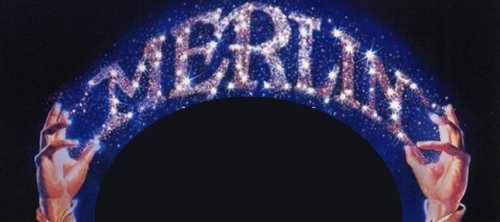Pas de biographie disponible.
Compositeur Musique additionelle Librettiste Parolier Metteur en scène Chorégraphe Producteur création Producteur version
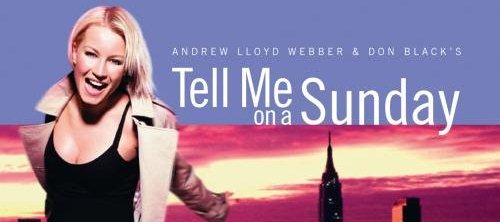
Musical
Musique: Andrew Lloyd Webber • Paroles: Don Black • Livret: Production originale: 7 versions mentionnées
Dispo: Résumé Commentaire
Genèse:
Résumé: L'héroine (anonyme) d'origine anglaise débarque à New York, et connait une première déception quand elle apprend que l'homme qu'elle aime la trompe. Elle rencontre ensuite un producteur d'Hollywood, Sheldon Bloom, qui l'emmène en Californie, mais le style de vie à Los Angeles ne lui plait pas, et elle revient vite à New York. Elle sort ensuite avec un homme trop jeune pour elle, puis avec un homme marié, pour se retrouver toute seule à la fin.
Création: //1979 - Sydmonton Festival (Sydmonton) - représ.
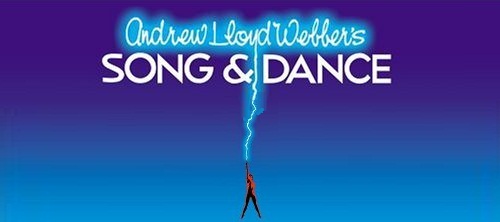
Musical
Musique: Andrew Lloyd Webber • Paroles: Don Black • Livret: Production originale: 3 versions mentionnées
Dispo: Résumé Commentaire
Genèse:
Résumé: ACT I : notre chanteuse, d'origine anglaise débarque à New York pour y chercher l'amour. Elle sort avec un danseur, mais celui-ci la quitte. Elle rencontre ensuite un producteur d'Hollywood, Sheldon Bloom, qui l'emmène en Californie, mais le lifestyle de Los Angeles ne lui plait pas, et elle revient vite à New York. Elle sort ensuite avec un homme trop jeune pour elle, puis avec un homme marié, et se retrouve seule. ACT II : Joe, danseur de son état, passe de femme en femme, cherchant aussi l'amour sans le trouver. FINALE : la chanteuse et le danseur finissent par se retrouver et s'avouent leur amour.
Création: 26/3/1982 - Palace Theatre (Londres) - représ.
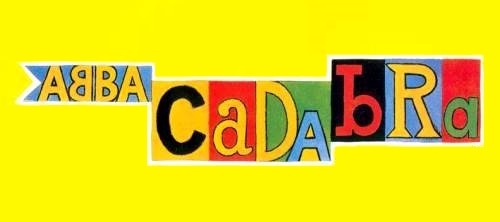
Musical
Musique: Benny Andersson • Björn Ulvaeus • Paroles: Don Black • Mike Batt • Livret: Alain Boublil • Daniel Boublil • David Wood • Production originale: 1 version mentionnée
Dispo: Synopsis Génèse
Genèse: Abbacadabra est un « conte musical » pour enfant réalisé pour la télévision par Alain et Daniel Boublil qui a été diffusé en neuf parties de 5 à 10 minutes environ pendant les vacances de Noël dès le 21 décembre 1983. La musique est celle des chansons du groupe suédois Abba. Parmi les interprètes adultes se trouvent : Fabienne Thibeault, Daniel Balavoine, Plastic Bertrand, Frida (seule membre d'ABBA présente), Maurice Barrier, Daniel Boublil (sous le pseudonyme de Daniel Beaufixe), Francoise Pourcel (sous le pseudonyme de Marie Framboise), Catherine Ferry, Les enfants : Stéphane Le Navelan (soliste des Petits Chanteurs d'Asnières), Stéphane Boublil (le fils d'Alain), Clémentine Autain, Emmanuelle Pailly (doubleuse, entre autres, de dessins animés japonais), Claire D'asta, et les Petits Chanteurs d'Asnières pour les chœurs. De ce conte, naîtra un 33 tours réunissant les interprètes de la création télévisée. Les chansons « Mon nez mon nez mon nez » (Money Money Money) interprétée par Plastic Bertrand, « Belle », un des titres phares du disque avec un duo de Daniel Balavoine et Frida, « L'enfant Do » et « Tête d'allumette » sortiront en single. Plus tard, « Gare au loup » (Waterloo), avec Léa Drucker, qui remplacera Clémentine Autain, sortira en single, courant 1984. Cameron Mackintosh décide de produire une version anglaise de la comédie musicale, avec des textes de David Wood et Don Black. La première a eu lieu le 8 décembre 1983 au Lyric Hammersmith Theatre, à Londres. Parmi les interprètes de l'édition anglaise, on trouve : Elaine Paige, Michael Praed, Finola Hughes et Jenna Russell.
Résumé:
Création: 8/12/1983 - Lyric Hammersmith Main House (Londres) - représ.
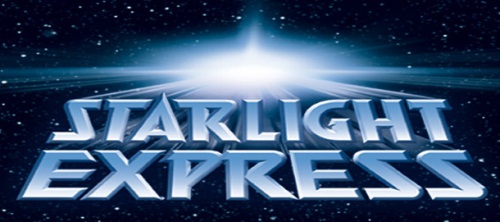
Musical
Musique: Andrew Lloyd Webber • Paroles: Don Black • Richard Stilgoe • Livret: Production originale: 10 versions mentionnées
Dispo: Résumé Commentaire
Genèse:
Résumé: Dans la chambre d'un enfant, plusieurs locomotives font la course, accompagnés de leurs wagons préférés. qui gagnera ? Greaseball, la locomotive diesel? Electra, la locomotive électrique? Quand même pas Rusty, la locomotive à vapeur ? Rusty reçoit alors l'aide du mysterieux Starlight Express. Avec son aide, Rusty réussira peut-être à gagner la course et le coeur de la belle Pearl. Comme dit Poppa, il y a toujours une lumière au fond du tunnel.
Création: 27/3/1984 - Apollo Theatre (Londres) - représ.

Musical
Musique: Andrew Lloyd Webber • Paroles: Charles Hart • Don Black • Livret: Andrew Lloyd Webber • Charles Hart • Don Black • Production originale: 15 versions mentionnées
Dispo: Résumé Synopsis Commentaire Génèse Isnpiration Liste chansons
Cet audacieux et ambitieux opéra de chambre explore la cartographie du cœur humain, s’attardant sur les changements d'alliance de six amants à travers trois générations. Alex n’a que dix-sept quand l'amour transforme tout dans sa vie. Sa furtive liaison avec l’ambitieuse actrice Rose amorce une succession de liaisons amoureuses qui se prolonge à l'âge adulte. Alex perd Rose au détriment de son oncle George, qui l’épousera. Avec le temps, la maîtresse de George, la belle Giulietta, aura une aventure avec Rose, qui elle conservera son amant, Hugo. Comme un écho du caprice originel entre Rose et Alex, ce dernier aura une aventure avec la fille adolescente que Rose a eu avec son oncle vieillissant. Cette complexe ronde familiale est entraînée par une partition puissante et passionnée.
Genèse: Lloyd Webber was introduced to Aspects of Love in 1979, when he and Tim Rice were approached to write a few songs for a proposed film version. When nothing came of it, he suggested to Trevor Nunn that they collaborate on a stage adaptation. In 1983, they presented a cabaret of numbers they had written, but it was not until five years later that they tackled the project in earnest. For the finished project, Lloyd Webber used at least five of the tunes he had written for the 1986 one-act musical Cricket, which he had written with Tim Rice. ------ Extrait du programme de "Aspects of love": My first encounter with David Garnett’s Aspects of Love was in 1979. Tim Rice had been sent the book as a film was being planned to which we were possibly to contribute songs. Some time later, we felt it was an interesting subject for us to write, particularly as it was so different from Evita and I had just finished Tell Me On A Sunday, which was not so very far in scale from how I imagined Aspects. But a splendid and somewhat indulgent few days at Eugenie-les-Bains, chosen because we argued it was vaguely near Pau, bore little fruit. During the course of Cats rehearsals, I gave the book to Trevor Nunn, who was delighted with it. In 1983, we presented a “cabaret” of some songs we wrote together for a possible full-length musical. But these songs did not work either. I often feel that I was trying to impose a big, grandiose, romantic style onto the novel and in fact a fair amount of the music of the cabaret became The Phantom of the Opera. It was a little before the completion of Phantom that I realised that I wanted to change direction sharply in my next work. Thus I returned to the Garnett novel and in the company of Don Black, who I had worked with on Tell Me On A Sunday, and Charles Hart, with whom I was completing Phantom, we decided to try once more. Of the 1979 version, nothing survives in this score as nothing much was written anyway. Of the 1983 version, the most substantial melody to survive is the Pyrenees folk song. Two others also survive: George’s section about Rose in the Venice sequence and also in that sequence a motif I used as a television theme tune when I thought in 1984 Aspects was a subject I would not return to. All of the principal melodies and the great body of the work were written, therefore, during the course of my collaboration with Don and Charlie. To offer the work to Trevor Nunn to direct was obvious, since his interest in the book has been every bit as great as mine for almost as long. Indeed, in 1983 he took over the rights to develop the novel as a film. It is, perhaps, worth recording that Aspects very nearly did become the first musical of mine that was made as a film without a theatrical presentation, but Trevor Nunn convinced me otherwise and thus we are enjoying our first collaboration together about human beings. ----- The West End production, directed by Trevor Nunn and choreographed by Gillian Lynne, opened on April 17, 1989 at the Prince of Wales Theatre, where it ran for 1,325 performances. The original cast included Kevin Colson, Ann Crumb, Michael Ball, Kathleen Rowe McAllen and Diana Morrison. Sarah Brightman, Barrie Ingham, and Michael Praed were among the replacements later in the run. Roger Moore was due to star in the production but dropped out. The Broadway production, with the same creative team and many of the original London cast, opened on April 8, 1990 at the Broadhurst Theatre and closed on March 2, 1991 after 377 performances and 22 previews. Brightman and John Cullum joined the cast later in the run. The reviews were lackluster and New York Times critic Frank Rich wrote in a negative review "Whether Aspects of Love is a musical for people is another matter." When the musical closed, the entire $8 million investment was lost, which, according to the New York Times, made it "perhaps the greatest flop in Broadway history." In 1991, a "chamber" version of the show with Keith Michell was mounted in Canada. It subsequently toured in America and a similar production was staged in Australia. Aspects of Love was produced in Japan, the Philippines, Hungary, Finland, and Denmark as well. A new UK tour began on 31 August 2007, the first production in 15 years. Starring David Essex as George Dillingham, the production was directed by Nikolai Foster, and musically directed by Andrew J.Smith. The tour opened at the Theatre Royal, Newcastle upon Tyne, and toured for 36 weeks through 8 December 2007. Following the UK tour, the musical played a limited engagement at The Joburg Theatre in Johannesburg, South Africa from May 22 to June 28, 2009. The touring production was re-directed by Nikolai Foster and starred Samantha Peo, Robert Finlayson, Angela Kilian and Keith Smith. A London revival will run at the Menier Chocolate Factory from July 15 to September 11, 2010, directed by Trevor Nunn.
Résumé: ACTE I - 1947, France. Rose une jeune actrice rencontre un jeune fan anglais, Alex, qui l'emmène dans la villa de son onde à Pau, mais l'oncle, George, débarque avec sa maîtresse Giuletta. Rose tombe sous le charme de George et quitte Alex. Rose épouse ensuite George et donne naissance à jenny. ACTE II - 1962, Rose est devenue une actrice renommée et a un jeune amant Hugo. De retour à Pau, Rose retrouve Alex et en tombe amoureuse tout comme Jenny sa jeune fille. Alex a de la peine à choisir entre Rose son anden amour et Jenny, mais aux funérailles de George, Alex retrouve Giuletta et se découvrent une attirance commune.
Création: 17/4/1989 - Prince of Wales Theatre (Londres) - représ.
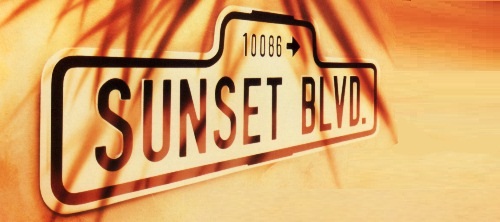
Musical
Musique: Andrew Lloyd Webber • Paroles: Christopher Hampton • Don Black • Livret: Christopher Hampton • Don Black • Production originale: 21 versions mentionnées
Dispo: Résumé Synopsis Commentaire Génèse Liste chansons
Vidéos:
Genèse: From approximately 1952 to 1956, Gloria Swanson worked with actor Richard Stapley (aka Richard Wyler) and cabaret singer/pianist Dickson Hughes on a musical adaptation originally entitled Starring Norma Desmond, then Boulevard! It ended on a happier note than the film, with Norma allowing Joe to leave and pursue a happy ending with Betty. Paramount originally had given Swanson verbal permission to proceed with the musical, but there had been no formal legal arrangement. On 20 February 1957, Paramount executive Russell Holman wrote Swanson a letter in which he asked her to cease work on the project because "it would be damaging for the property to be offered to the entertainment public in another form as a stage musical." In 1994, Hughes incorporated material from the production into Swanson on Sunset, based on his and Stapley's experiences in writing Boulevard!. A recording of the entire score, which had been housed in the Gloria Swanson archives at the University of Texas, was released on CD in 2008. In the early 1960s, Stephen Sondheim outlined a musical stage adaptation and went so far as to compose the first scene with librettist Burt Shevelove. A chance encounter with Billy Wilder at a cocktail party gave Sondheim the opportunity to introduce himself and ask the original film's co-screenwriter and director his opinion of the project (which was to star Jeanette MacDonald). "You can't write a musical about Sunset Boulevard," Wilder responded, "it has to be an opera. After all, it's about a dethroned queen." Sondheim immediately aborted his plans. A few years later, when he was invited by Hal Prince to write the score for a film remake starring Angela Lansbury as a fading musical comedienne rather than a silent film star, Sondheim declined, citing his conversation with Wilder. When Lloyd Webber saw the film in the early 1970s, he was inspired to write what he pictured as the title song for a theatrical adaptation, fragments of which he instead incorporated into Gumshoe. In 1976, after a conversation with Hal Prince, who had the theatrical rights to Sunset, Lloyd Webber wrote "an idea for the moment when Norma Desmond returns to Paramount Studios"; Lloyd Webber did no further work on the play until after 1989's Aspects of Love. At that point, Lloyd Webber "felt it was the subject [he] had to compose next", though by February 1990 he had announced plans to turn Really Useful Group private so he could "make movies rather than musicals." In 1991, Lloyd Webber asked Amy Powers, a lawyer from New York with no professional lyric-writing experience, to write the lyrics for Sunset Boulevard. Don Black was later brought in to work with Powers; the two wrote the version that was performed in 1991 at Lloyd Webber's Sydmonton Festival. This original version starred Ria Jones as Norma but it was not a success. A revised version, written by Black and Christopher Hampton had a complete performance at the 1992 Sydmonton Festival, now with Patti LuPone playing Norma, and "met with great success". Lloyd Webber borrowed several of the tunes from his 1986 mini-musical Cricket, written with Tim Rice, which had had an acclaimed run at Windsor Castle and later at the Sydmonton Festival. Sunset had its World Premiere at London's Adelphi Theatre on July 12, 1993, with Patti LuPone (Norma Desmond) and Kevin Anderson (Joe Gillis) starring and Daniel Benzali playing Max. The opening had been delayed slightly due to complex technical problems which plagued the show during development. Press interest had been unprecedented ever since the project was announced, but initial reviews were mixed. This did not stop the show receiving record advance bookings, however. The American Premiere took place on December 9, 1993 not on Broadway, but in Los Angeles at the Shubert Theatre. This time the show starred Glenn Close (Norma Desmond), Alan Campbell (Joe Gillis), Judy Kuhn (Betty Schaefer) and George Hearn (Max von Mayerling). Soon, it was decided that Close should open the Broadway production, with Faye Dunaway replacing her in LA. This caused great problems, as Patti LuPone had been promised the leading role on Broadway. She filed a million dollar lawsuit, feeling she had been badly let down. When Faye Dunaway came to rehearse for the LA show, it quickly became clear that her singing voice was not up to standard, and she too filed a court case (both were settled by out-of-court agreements). Without a leading lady, the LA production was closed when its cast moved to New York. On November 17 1994, Sunset Boulevard opened on Broadway at the Minskoff Theatre, with Close, Campbell and Hearn reprising their roles and Alice Ripley joining as Betty Schaefer. The show had the highest advance in Broadway history ($37.5 million in ticket sales). Sunset Boulevard gained the theatre's highest honour when it received seven Tony Awards in 1995, including Best Musical, Best Leading Actress, Best Score, Best Lighting and Best Scenic Design. The improvements made to the show for its American opening were incorporated into the London production in 1994, and it closed for a short while whilst these were implemented, reopening with a new star - Betty Buckley. Divas Rita Moreno, Elaine Paige, Petula Clark and Karen Mason were all to play the title role on London and/or Broadway. Sunset closed on Broadway on March 22nd 1997. The London production closed on the 5th April 1997 with Petula Clark and Graham Buckley playing the title roles. The Canadian production opened on October 15, 1995 starring Diahann Carroll (Norma), Rex Smith (Joe) and Walter Charles (Max), but despite public interest, closed after a relatively short run. The First US National Tour of Sunset Boulevard premiered in June 1996 with Linda Balgord in the starring role, but the tour ended in Chicago in 1997, despite having had plans to tour for at least a further two years. The Broadway production - flying mansion and all - had been recreated for this tour, and the sheer expense of moving the production around eventually proved its Achilles heel. The show opened in Melbourne, Australia in October 1996 but it closed in 1997. Plans for an entirely new production to play the Sydney Opera House in November 1999 did not come to fruition. Sunset Boulevard also played at Niederhausen near Frankfurt, Germany in a theatre specially constructed to house the show. The show was translated into German, and seemed to adapt very well. The production starred US jazz singer Helen Schneider, and TV-personality Daniela Ziegler during its respectable 2 1/2 year run; and was seen by nearly 1 million people. German Sunset had been set to close in 1997 alongside the London and Broadway productions, but it was saved by Peter Buck, a building contractor who bought the German rights to the musical from the Really Useful Group. He attempted to cut back on the running costs of the show, but unfortunately it still proved financially unsound. It closed on May 3rd 1998 with Sue Mathys (Norma Desmond) and Yngve Gasoy Romdal (Joe Gillis) in the lead roles. A new US Touring Production opened in December 1998 in Pittsburgh, starring Petula Clark. This was a new production, with entirely new scenic design and direction, which was the cause of much controversy among fans of the show, many of whom saw it as highly inferior to the lavish original. The tour ran for over a year, however, and was well received by press all over the US.
Résumé: Impoverished screenwriter Joe Gillis stumbles upon the stuffy mansion of faded filmstar Norma Desmond by chance. She initially employs him to edit her script for a movie of Salome, which she plans to use as her comeback vehicle, demanding he reside at her home whilst he works. She soon falls hoplessly in love with him, and persuades him to stay on as her live-in lover, much to the shock of her loyal butler (and ex-husband) Max. Joe finds himself torn away from his old lifestyle and friendships. Meanwhile, Norma has proceeded with her plans for her return to the screen, and visits Paramount studios to seek Cecil B. DeMille's help. Away from Norma's glare, however, Joe collaborates in secret with young studio employee Betty Schaefer, and they soon declare their love for one another. Torn between his life of luxury supplied by Norma, and his genuine affection for Betty, Joe decides to leave Hollywood and start life afresh in his native Ohio. Norma, in a fit of shock and rage, shoots Joe as he leaves her home on Sunset Boulevard. In the final scene, she descends into insanity as press and police invade her home, and, believing herself to be back on the set of one of her movies, descends the grand staircase in ger mansion with the immortal words: "and now, Mr DeMille, I'm ready for my close-up.."
Création: 12/7/1993 - Adelphi Theatre (Londres) - représ.
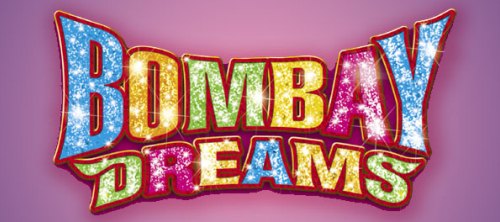
Musical
Musique: A.R. Rahman • Paroles: Don Black • Livret: Meera Syal • Thomas Meehan • Production originale: 2 versions mentionnées
Dispo: Résumé Synopsis Commentaire Liste chansons
Genèse:
Résumé: A love story set against the backdrop of Bollywood, the Indian movie industry in Bombay. Priya is the daughter of a wealthy Bollywood film director who falls in love with poor man Akaash.
Création: 19/6/2002 - Apollo Victoria Theatre (Londres) - représ.

Musical
Musique: Frank Wildhorn • Paroles: Don Black • Livret: Ivan Menchell • Production originale: 6 versions mentionnées
Dispo: Résumé Synopsis Génèse Liste chansons
Vidéos:
Genèse: Previously, Black and Wildhorn collaborated on Dracula, the Musical, which also had its world premiere in La Jolla. Wildhorn got in touch with Black about the possibility of writing a song cycle based on the story of Bonnie and Clyde. They released a demo of songs - five of which are still in the present musical - them with Michael Lanning and Linda Eder for Atlantic Records. The music contains elements of country and western, the Blues, and Broadway pop. In February 2009, the show held an industry-only reading at Roundabout Theatre Company, starring Laura Osnes as Bonnie and Stark Sands as Clyde. It was directed by Jeff Calhoun. Other featured and ensemble cast were Rob Evan, Kelsey Fowler, Natalie Hill, Michael Lanning, David Larsen, Jacob Levine, Brynn O'Malley, Geoff Packard, Tricia Paoluccio, Jessica Phillips, Nancy Ringham, Bart Shatto, Marty Thomas, Ben Thompson, Tad Wilson and Betsy Wolfe. Novembre 2009 La Jolla Playhouse) The musical had its world premiere at the La Jolla Playhouse in La Jolla, California, running from November 10, 2009, through December 20, 2009. Calhoun was the director and choreographer, with John McDaniel, music director and orchestrator; Tobin Ost, Scenic and Costume designer; Michael Gilliam, lighting designer; and Aaron Rhyne, projection designer. Osnes and Sands starred, along with Mare Winningham as Bonnie's mother, Wayne Duvall as the hot-tempered sheriff who's got it in for Clyde, Melissa van der Schyff as Blanche, Claybourne Elder as Buck and Leslie Becker as Clyde and Buck's mother.[4] It won five major 2009 San Diego Theatre Critics Circle Awards. Novembre 2010 Asolo Repertory Theatre The next production opened on November 19, 2010 at the Asolo Repertory Theatre in Sarasota, Florida. It ran through December 19, 2010, and was once again directed and choreographed by Jeff Calhoun. Asolo producing artistic director Michael Edwards had said: "How it goes here will determine whether it goes to Broadway." Novembre 2011 Broadway The musical began Broadway previews on November 4, 2011, at the Gerald Schoenfeld Theatre, with the opening scheduled for December 1, 2011.
Résumé: In Depression-era West Texas, Bonnie, a 23 year old waitress in a diner, dreams of leaving ("Short Order World"). Clyde, who has just broken out of prison with his brother Buck Barrow, tries to steal her mother's car. Bonnie recognizes another dreamer ("This World will Remember Me") and falls in love with him. They are captured by The Sheriff and Deputy Ted, who is enamoured of Bonnie, and Clyde is given a prison sentence. Blanche, Buck's wife, had warned that "You're Goin' Back to Jail". Bonnie smuggles in a gun and Clyde again breaks out of prison, killing a deputy. They then start a life of crime, joined by Buck and Blanche, robbing banks and travelling to avoid being caught. Bonnie writes poetry about their life. They murder others and Buck himself is killed. There is intense press coverage, even publishing Bonnie's poems. As they return to visit their parents, including Emma, Bonnie's mother, Ted follows them. The Sheriff vows to track them down ("The Long Arm of the Law"), and they are finally killed in a shoot-out.
Création: 10/11/2009 - La Jolla Playhouse (San Diego) - représ.
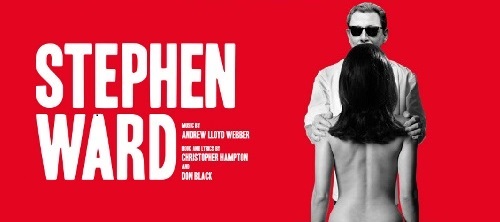
Musical
Musique: Andrew Lloyd Webber • Paroles: Christopher Hampton • Don Black • Livret: Christopher Hampton • Don Black • Production originale: 1 version mentionnée
Dispo: Résumé Génèse
Vidéos:
Genèse: In February 2012, Webber first revealed in an interview with Chris Evans that he was considering working on a show based on the Profumo Affair. A first reading of the musical was held in London in early 2013, with its first public outing coming in March, with Milos Karadaglic performing the title song from the show on an ITV special Andrew Lloyd Webber: 40 Musical Years. The track was later released as a digital download. Officially confirmed on 28 June 2013, producers announced that the show would play the Aldwych Theatre, with tickets going on sale immediately. The show has a book with lyrics by Don Black and Christopher Hampton and is directed by Richard Eyre, with choreography by Stephen Mear, set design by Rob Howell, lighting design by Peter Mumford and sound by Paul Groothuis. Production history West End (2013) Stephen Ward is expected to begin previews on 3 December 2013, at the Aldwych Theatre, London, before holding its official opening night on 19 December. On 6 September 2013, full casting was announced with Alexander Hanson playing the title role of Stephen Ward, Charlotte Spencer as Christine Keeler, Joanna Riding as Valerie Hobson, Charlotte Blackledge as Mandy Rice Davies, Anthony Calf as Lord Astor, Daniel Flynn as John Profumo, Ian Conningham as Ivanov, Chris Howell as Murray, Ricardo Coke Thomas as Lucky Gordon and Wayne Robinson as Johnny Edgecombe.
Résumé: 1963. The scandal that shocked society. Stephen Ward deals with the victim of the Profumo Affair - not, as is widely supposed, John Profumo himself, the disgraced Minister for War, nor even the fatally wounded Conservative government of Harold Macmillan, but the society osteopath whose private libertarian experiments blew up in his own and everyone else's face. ' In a trial as emblematic to the twentieth century as Oscar Wilde's was to the nineteenth - from which he was the only protagonist to emerge with some dignity and honour - Ward became the targeted scapegoat of a furiously self-righteous Establishment. By no means a hero, he was a reluctant martyr, thanks to an unholy alliance between press and police of a kind we can all too readily recognise today; inadvertently, he was the hinge between two worlds and the harbinger of a revolution in manners, music and morals when the ordered, stuffy, respectful universe of the fifties gave way to the classless, truculent, unstoppable sixties.'
Création: 19/12/2013 - Aldwych Theatre (Londres) - représ.
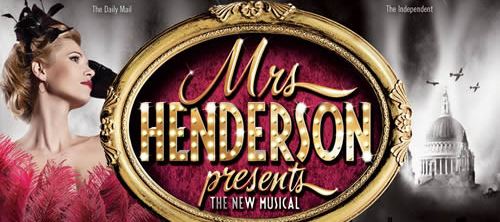
Musical
Musique: George Fenton • Simon Chamberlain • Paroles: Don Black • Livret: Terry Johnson • Production originale: 1 version mentionnée
Dispo: Résumé
Genèse:
Résumé: It's London, 1937, and recently-widowed eccentric, Laura Henderson, is looking for a way of spending her time and money when her attention falls on a run-down former cinema in Great Windmill Street. Hiring feisty impresario Vivian Van Damm to look after the newly renovated Windmill Theatre, the improbable duo present a bill of non-stop variety acts. But as war looms something more is required to boost morale and box office... When Mrs Henderson comes up with the idea of The Windmill Girls – glamorous young women posing as nude statues – audiences flock. And as the Blitz hits London, The Windmill provides a refuge for all, boasting the spirit-raising slogan "We Never Close".
Création: 14/8/2015 - Theatre Royal (Bath) - représ.

.png)
.png)





